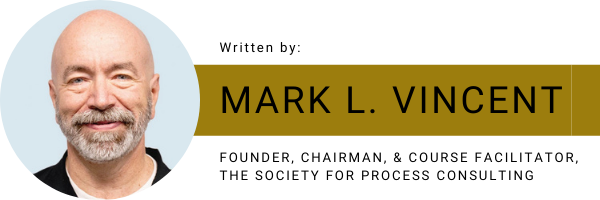.png) A brief article at the back of the Economist (Rum punch and the pandemic, 9 January 2021) tells us about COVID on the island nation of Barbados and gives Process Consultants* everywhere an illustration of how a critical process gets so easily derailed by people on the seeming periphery.
A brief article at the back of the Economist (Rum punch and the pandemic, 9 January 2021) tells us about COVID on the island nation of Barbados and gives Process Consultants* everywhere an illustration of how a critical process gets so easily derailed by people on the seeming periphery.
Almost through the end of 2020, Barbados was able to keep cases to a trickle, but at the end of the year neighboring island nations identified Barbados as high risk. What happened? The article identifies two culprits.
-
Controls on travelers. Even though travelers needed a negative test to come to Barbados, and even then had to quarantine until a negative second test, a number of people tested positive after arrival.
-
Local spread. Pub crawls and holiday celebrations turned into super spreader events.
Actually, it really is just one culprit: People. People who decide not to participate in the process, people who appear to participate in the process but in reality are not, and people who are deeply in the process but are more worried about enforcement than ongoing learning.
People who decide not to participate
In Barbados, prison guards participated in one of those pub crawls. Dodds prison (St. Philip parish) then recorded more than 170 cases among staff and inmates in the days that followed.
It isn't likely that the general population of Barbados was invited to help form the principles for community response to a health outbreak. They were just told in response to COVID, as were citizens of most nations. This lack of additional work to include the larger populations plays out in public protests, public funerals of celebrities, and larger splits among people.

When we ask "Who needs to be consulted?" in identifying the people and roles played in a process design with a client, the client must account for the ownership of the process and alignment with those among whom the process will be implemented. Ongoing development of a partnership must happen, or the response will be that of a victim.
People who appear to participate but in reality are not
Zara Holland, former Miss Great Britain and a minor celebrity from her time on a reality TV dating show, removed the red bracelet she needed to wear as someone who tested positive. So did her partner. They travelled around Barbados on holiday and tried to fly back to London. She has subsequently apologized to the people of Barbados and has been ordered to pay a fine.

This dynamic is something Kim Stezala and I labelled the Lieutenant Effect, in our article Wheel forward or spiral downward: making a choice for strategic design. Process consultants are wise to assume passive-aggressive behavior will be present from the beginning and at the highest level of client organizations. It is the highest art of the profession to name it and shine a light on it without shaming those who are likely to enthusiastically shake your hand while peeing on your shoe.
Why does it happen? Change exposes weakness or a problem to address. It is easy to be embarrassed and to feel that the work to improve something is a reflection of one's incompetence. If a person does not feel safe, they are likely to extend some of the behaviors (conscious or unconscious) that added to the problem, extended the problem, or even covered up the problem until it could be hidden no longer. It is a good consultative question to ask "Who might be threatened by this, and how might we help them feel safe?" Also, "What might we do if someone who is important to this decides not to cooperate?"
People who are deeply in the process but are more worried about enforcement than ongoing learning
Fortunately for the people of Barbados, the prime minister is leading the process to make adjustments, tamper-proof bracelets as a for instance. But imagine everyone downstream who has to adapt yet again and deal with the public. If they think of this as messing with their work rather than the work itself, they will represent one more slow down to an effective response.

So much of a Process Consultant's work is keeping the lifeline of reality visible for clients to do their own work. Who, among all the leaders and organizations, can claim to have finished building and supporting the organization so that it fulfills its mission? We are so tempted to believe this is possible, either by denying the reality of what is happening or by resisting the fix we claim to want. The Process Consultant helps to safely articulate this reality while inviting engagement within the client organization to do something real and substantial.
Process Consultants must also be realistic. The derailing is happening even as they get started. Better to face it now, designing process with that expectation, being surprised when it does not show up rather than denying its presence and being surprised that an elegant solution never got underway.
* A good (re)primer on Process Consulting was developed in a blog post by Matt Visser, a Senior Consultant in Design Group International's community of practice.
-mark l vincent
